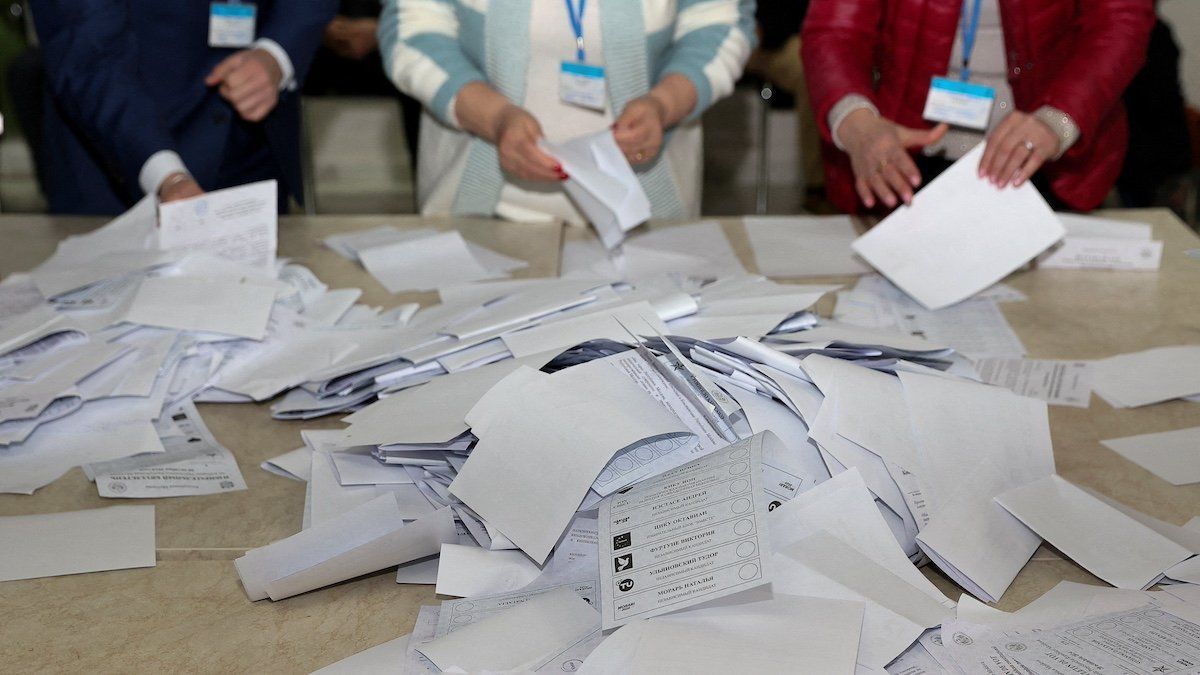Moldovans voted in a presidential election and a referendum on European integration on Sunday. President Maia Sandu cruised into the second round runoff with 42% of the vote as she seeks reelection with a pro-EU platform against 10 rivals, many of whom favor closer ties to Russia. The referendum, which would enshrine Moldova’s EU ambitions into its constitution, looks like it will pass with the slimmest of margins: a 50.17% majority.
A former Soviet state of roughly 3 million people that gained independence in 1991, Moldova sits landlocked between Ukraine and Romania and has been tugged between Eastern and Western influences ever since. One of Europe’s poorest nations, it is also bordered by Transnistria, a breakaway region along the Dnister River that declared independence in 1990, fearing Moldova’s potential reunification with Romania. Moscow maintains troops there, making the threat of Russian military action a constant concern.
Most recently, European Commission President Ursula von der Leyen visited Moldova to announce a $2 billion economic support package from the EU and Washington. At the same time, fugitive Moldovan oligarch Ilan Shor, now living in Russia, is accused of undermining Sandu’s EU ambitions by funneling millions in cash to her opponents, much of which has been seized by authorities. Sandu said there was “clear evidence” of “fraud on an unprecedented scale.”
Sandu now faces a run-off against pro-Russian candidate Alexandr Stoianoglo on Nov. 3. As for the referendum, it will pass if its tight margin holds, but it is far from the resounding endorsement of EU admission that Sandu would prefer going into the runoff.
